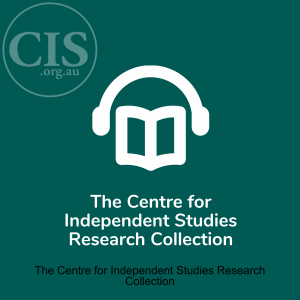
Thursday Jun 05, 2025
How to Vandalise Savings: the New Super Tax | Robert Carling
The proposed tax on superannuation balances exceeding $3 million is poorly designed, economically damaging, and sets a dangerous precedent by taxing unrealised capital gains, a Centre for Independent Studies paper outlines.
In How to Vandalise Savings: the New Super Tax, economist Robert Carling delivers a scathing critique of the tax, calling for the scheme to be shelved or substantially revised and deferred to a later start date than 1 July 2025.
This analysis arrives at a critical juncture as the re-elected Labor government prepares to reintroduce legislation that had previously stalled before the May 2025 election.
While the tax is marketed as affecting only a small number of high-balance super accounts, the paper makes clear that its impact will widen rapidly and disproportionately affect those who have saved prudently under previous rules.
The new tax is often described as doubling the existing tax — which would be severe in itself — but in fact it is more than a doubling. The existing tax allows for a one-third discount of capital gains from longer held assets, which reduces the effective tax rate to 10%. This discount will not be available under the new tax. The treatment of dividend franking credits also means that tax payable will more than double on balances above $3 million.
“Far from being the ‘modest change’ described by the government, this tax represents a radical shift with long-term implications for retirement planning, capital markets, and the integrity of the tax system,” Carling warns. “Doubling a rate of tax is anything but modest.”
“The new tax being applied to unrealised gains will distort investment behaviour, increase compliance costs, and undermine confidence in superannuation as a long-term savings vehicle.”
Carling points out that the lack of indexation for the $3m threshold is a time bomb for workers.
“The threshold is not indexed to inflation or wages, meaning more Australians will be caught over time as balances naturally grow,” Carling says. “Even indexing to the CPI would not be enough, because average CPI-adjusted balances will grow as real incomes grow.”
“This design flaw echoes the bracket creep issue in income tax and suggests a stealthy revenue grab.”
The paper highlights the near-impossible task of applying “broadly equivalent” treatment to unfunded public sector pensions, arguing it could result in unfair double taxation and legal confusion.
Carling points out that the tax is also likely to drive investors away from growth and innovation-focused assets — such as small businesses and start-ups — towards more conservative, liquid holdings, “with long-term costs to economic productivity”.
“Further, despite the significance of the tax, the government has provided little in the way of theoretical justification, relying instead on administrative convenience and political rhetoric,” he says. “Making such a far-reaching change out of administrative convenience is like the tail wagging the dog.”
Recommendations
- Carling urges the government to delay the implementation date by at least 12 months and undertake a full review of the policy design – most importantly to resolve administrative obstacles to calculating earnings as they are now, including discounted realised gains rather than undiscounted unrealised gains.
- A temporary waiver of impediments should be granted to allow those affected to shift funds out of superannuation before the tax takes effect.
- Ultimately, the paper argues the tax should not proceed in any form, echoing the views of other leading economists, who have warned of its far-reaching consequences.
Robert Carling is a Senior Fellow at the Centre for Independent Studies and a former World Bank, IMF and federal and state Treasury economist.
#auspol #supertax
Subscribe to all our shows:
Liberalism in Question features thought-provoking interviews with world experts in politics and culture from a Classical Liberal perspective. Subscribe here: https://liberalisminquestion.podbean.com/
The CIS Research Collection delivers our research papers in an audio format so that you can listen to them on the go. Subscribe here: https://cisresearch.podbean.com/
What You Need to Know About delivers concise insights from CIS experts, breaking down complex topics like policy, economics, and societal challenges. Subscribe here: https://whatyouneedtoknowabout.podbean.com/
CIS Events Experience: From the studios of CIS our events team brings you engaging discussions from our live events, featuring lectures, panel discussions, and conversations with leading experts: https://cisevents.podbean.com/
No comments yet. Be the first to say something!